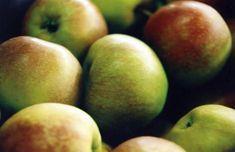
As New Zealand’s top-fruit export companies finalise out their returns to growers, industry trade body Pipfruit New Zealand (PNZ) has produced a format template for accurate comparison of different companies’ performances.
PNZ chairman Ian Palmer said 2008 has provided as good a basis for comparison as any recent season: “It is always interesting to cast an eye over the average returns from companies to see the varying performances and there always should be variances. But you cannot always call these true comparisons as not everyone is selling in the same market at the same time. Exchange rate variances, pooling versus fixed price sales etc, etc all have an influence to the end result.
"This year though, has the best real comparison for many years, as the market conditions generally stayed fairly constant throughout the entire selling window.”
Braeburn growers have enjoyed their best returns for countless years, he said, with results commonly averaging $24-28 (£8.50-£9.90). “This is an incredible result but it must be tempered with the reality that the two key markets were both hot to say the least and volume did not meet demand due to the devastating frost in Hawkes Bay last spring.
“The most disappointing factor out of this season is that not all got to ‘make hay while the sun shone’ - the realities of working with the land and Mother Nature. Royal Gala and Cox did not pick up full advantage of the exchange rate drop. It was a little too late for them, but generally all the later varieties enjoyed a lift of at least $2 from the drop,” Palmer said.
“It’s about time we got a win on the board in that regard.”
He advised growers to be mindful of a record Washington State crop and a seven per cent increase in the EU25 crop as they plan for 2009. “It clearly looks like we will be back to the full market situation again. Helping offset this is, of course, the lower exchange rate and the lowering world oil prices. It is too early to predict what effect the ‘global credit crunch’ will have, but the most likely offshoot is global unemployment and inflation rising. These are things we need to keep in mind as we head into our next selling season,” Palmer said.
“Hopefully growers have got through the recent cold snap without too much frost damage. I don’t think snow in November in Central Otago is what anyone needs. I’m sure there was some sleepless nights frost fighting in a lot of areas.”



